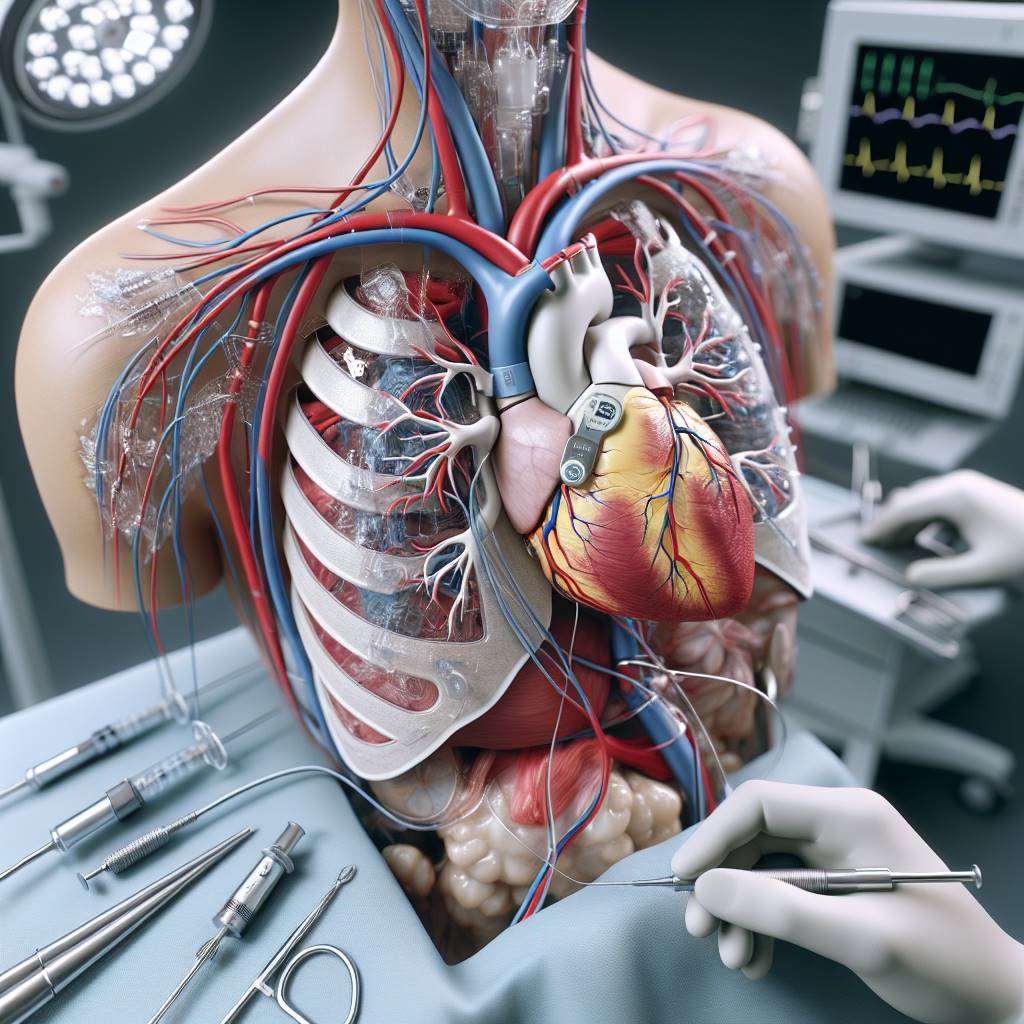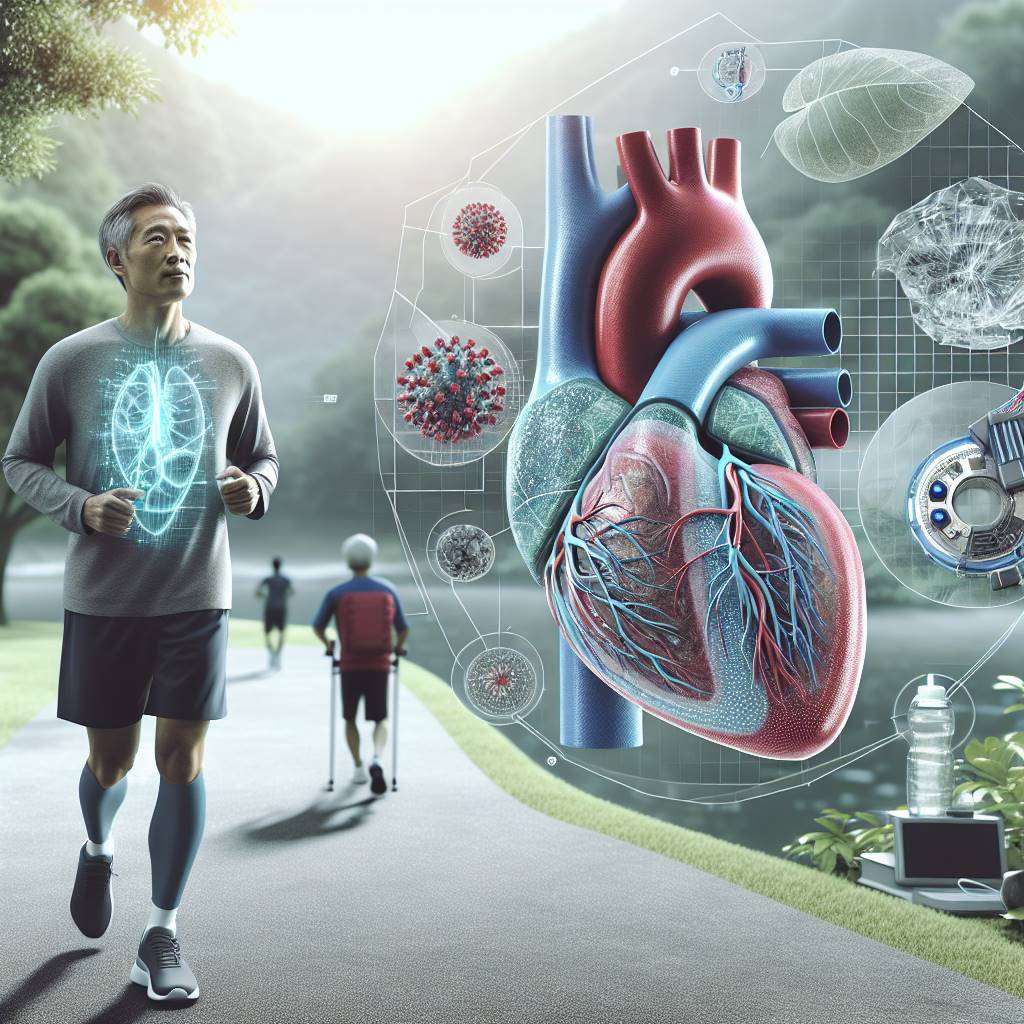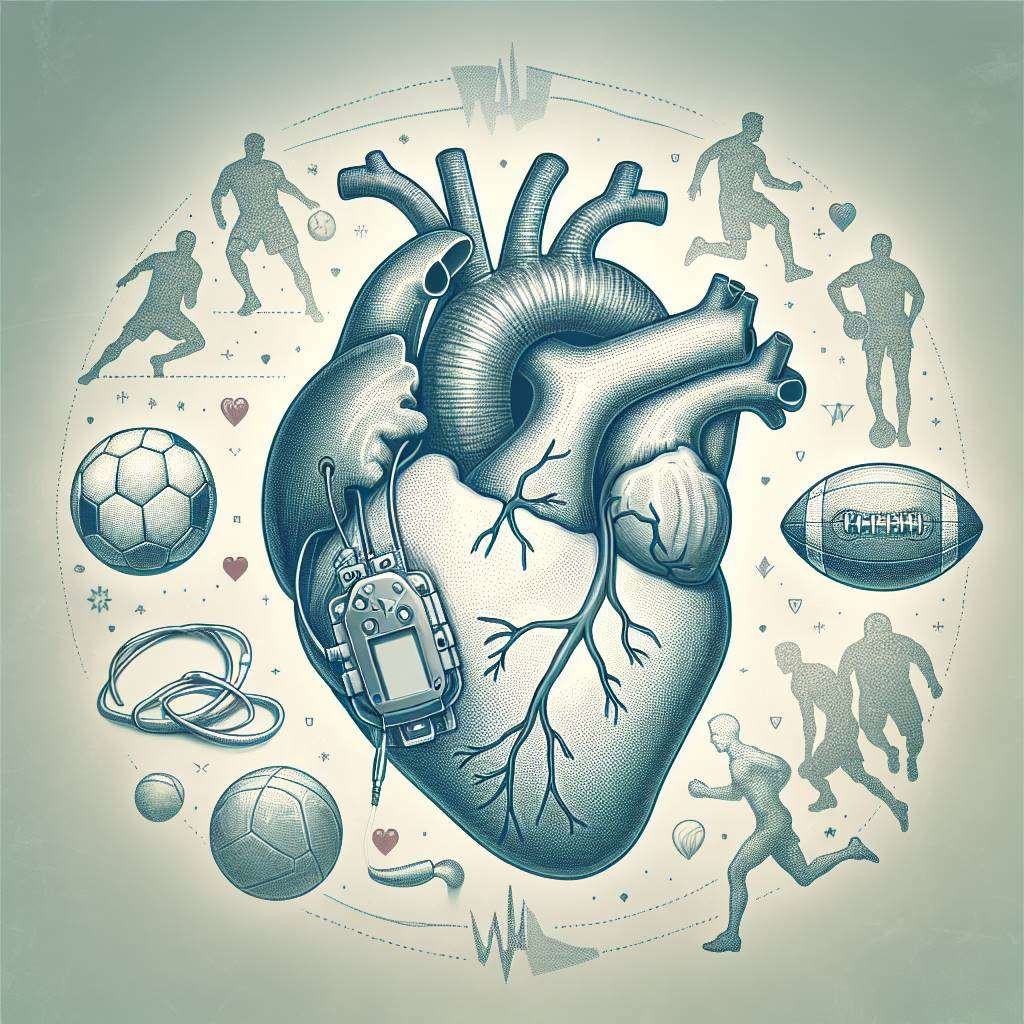Athletes with Automatic Implantable Cardioverter Defibrillators (AICDs) often wonder if their condition imposes limitations on their physical activities. An AICD is a life-saving device designed to monitor and correct abnormal heart rhythms, but its presence raises concerns about the safety of engaging in sports. Understanding the balance between safety and maintaining an active lifestyle is crucial for these individuals.
Medical disclaimer: This content is for general awareness and does not replace a doctor’s consultation. For diagnosis or treatment decisions, consult a qualified specialist.
While having an AICD does not necessarily mean giving up on sports, certain precautions and guidelines must be followed. This article explores whether athletes with AICDs face restrictions, the types of activities they can safely pursue, and the importance of consulting healthcare professionals for personalized advice. Staying informed helps athletes manage their condition while enjoying physical activity.
What Is an AICD and How Does It Work?
An Automatic Implantable Cardioverter Defibrillator (AICD) is a small device implanted in the chest to monitor and regulate heart rhythms. It is primarily used in patients at risk of life-threatening arrhythmias, such as ventricular tachycardia or ventricular fibrillation. The device continuously tracks the heart's electrical activity and delivers shocks or pacing to restore normal rhythm when needed.
The AICD consists of a pulse generator and leads that connect to the heart. The pulse generator contains a battery and circuitry to detect abnormal rhythms, while the leads deliver electrical impulses. This device is a critical tool for preventing sudden cardiac arrest in high-risk individuals, including some athletes.
For athletes, understanding how the AICD functions is essential. While it provides life-saving interventions, its presence may influence the types of physical activities that are safe to perform. Consulting a cardiologist is vital to ensure the device operates effectively during exercise.

Can Athletes with AICDs Safely Participate in Sports?
Many athletes with AICDs can safely participate in sports, but the level of activity depends on their specific heart condition and the type of sport. Low-to-moderate intensity activities like walking, swimming, and yoga are generally safe and encouraged. However, high-intensity or contact sports may pose risks due to the potential for device malfunction or physical trauma.
Research shows that regular exercise can improve overall cardiovascular health, even for individuals with AICDs. However, athletes must be cautious about overexertion, which could trigger arrhythmias. It is essential to work closely with a cardiologist or sports medicine specialist to determine a safe exercise plan tailored to the individual's condition.
Athletes should also be aware of warning signs such as dizziness, chest pain, or palpitations during exercise. If these symptoms occur, they should stop immediately and seek medical attention. With proper guidance, many athletes with AICDs can maintain an active lifestyle while minimizing risks.
Exercise Guidelines for Athletes Living with AICDs
Following specific exercise guidelines is crucial for athletes with AICDs to ensure safety and maximize the benefits of physical activity. Here are some general recommendations:
- Start with low-intensity exercises such as walking or cycling and gradually increase intensity under medical supervision.
- Avoid activities that involve sudden, high-impact movements or excessive strain on the chest area.
- Monitor heart rate and avoid exceeding the target range set by your cardiologist.
- Stay hydrated and avoid exercising in extreme temperatures.
Athletes should also schedule regular follow-ups with their healthcare provider to assess the AICD's performance and adjust exercise plans as needed. Personalized advice is key to balancing safety and physical fitness.
Understanding AICD Restrictions for Competitive Sports
Competitive sports often involve intense physical exertion, which can pose challenges for athletes with AICDs. The primary concern is the risk of arrhythmias triggered by high-intensity activity or physical contact, which could lead to device activation. Additionally, the physical demands of competitive sports may increase the likelihood of lead displacement or damage to the device.
However, not all competitive sports are off-limits. Non-contact sports such as running, swimming, or tennis may be considered safe for some individuals, depending on their medical history and the advice of their healthcare team. A thorough evaluation, including stress tests and device checks, is essential before engaging in competitive activities.
Athletes should also be aware of the psychological impact of restrictions. Support from coaches, teammates, and medical professionals can help them adapt to new routines while staying motivated. Open communication with healthcare providers ensures that athletes make informed decisions about their participation in sports.
Are Contact Sports Safe for Athletes with AICDs?
Contact sports, such as football, rugby, or martial arts, pose unique risks for athletes with AICDs. The primary concern is the potential for direct trauma to the chest, which could damage the device or dislodge its leads. Additionally, the physical intensity of these sports may increase the risk of arrhythmias, leading to device activation during play.
While some athletes may choose to participate in contact sports, it is essential to take precautions. Wearing protective gear, such as chest protectors, can help minimize the risk of injury. However, even with precautions, the decision to engage in contact sports should be made in consultation with a cardiologist and based on a thorough risk assessment.
For those who cannot safely participate in contact sports, alternative activities like swimming, cycling, or yoga can provide a fulfilling and safer way to stay active. Ultimately, the goal is to balance the benefits of physical activity with the need to protect the AICD and the athlete's overall health.
How to Balance Fitness Goals with AICD Safety
For athletes with an Automatic Implantable Cardioverter Defibrillator (AICD), maintaining fitness goals while ensuring safety is crucial. An AICD is a life-saving device designed to monitor and correct abnormal heart rhythms, but it can also impose certain limitations on physical activities.
To balance fitness and safety, it is essential to consult your cardiologist before starting any exercise program. They can provide personalized advice based on your heart condition and the type of AICD implanted. Low-impact exercises like walking, swimming, and yoga are often recommended as they minimize the risk of triggering the device.
Here are some general tips for AICD patients:
- Start with light to moderate-intensity workouts.
- Avoid contact sports or activities that could damage the device.
- Monitor your heart rate and stop if you feel dizzy or fatigued.
By following these guidelines, you can achieve your fitness goals while protecting your heart health.

Cardiologist-Approved Workouts for AICD Patients
Not all exercises are suitable for individuals with an AICD. However, there are several cardiologist-approved workouts that can help you stay active without compromising your safety. These exercises are designed to improve cardiovascular health while minimizing strain on the heart.
Some recommended activities include:
- Walking or brisk walking for 20–30 minutes daily.
- Swimming or water aerobics, which are gentle on the joints.
- Stretching and flexibility exercises like yoga or Pilates.
It is important to avoid high-impact activities such as running or weightlifting unless specifically approved by your doctor. Always warm up before starting and cool down afterward to prevent sudden changes in heart rate.
By incorporating these safe exercises into your routine, you can maintain a healthy lifestyle while managing your heart condition effectively.
Common Myths About AICDs and Physical Activity
There are several myths surrounding physical activity for individuals with an AICD. These misconceptions can lead to unnecessary fear or avoidance of exercise, which is not beneficial for overall health.
One common myth is that people with AICDs cannot exercise at all. In reality, moderate physical activity is not only safe but also recommended for improving heart health. Another misconception is that the device will activate during exercise. While this is possible, it is rare if you follow your doctor’s guidelines.
Some believe that AICDs are fragile and can be easily damaged during movement. However, these devices are designed to withstand normal physical activities. It is only high-impact sports or direct trauma to the chest that should be avoided.
Understanding the facts about AICDs and exercise can help you stay active without fear or hesitation.
What Athletes with AICDs Should Know About Risks
Athletes with an AICD face unique challenges when it comes to physical activity. While staying active is important, it is equally crucial to understand the potential risks involved. One of the primary concerns is the possibility of the device delivering an unnecessary shock during intense exercise.
Another risk is damage to the device or its leads due to high-impact sports or repetitive arm movements. Activities like football, basketball, or heavy weightlifting are generally discouraged for this reason. Additionally, dehydration and electrolyte imbalances during exercise can increase the likelihood of arrhythmias, which may trigger the AICD.
To minimize these risks, athletes should:
- Stay hydrated and maintain a balanced diet.
- Wear protective gear if engaging in light-contact sports.
- Regularly consult their cardiologist for device checks and exercise advice.
By being aware of these risks and taking preventive measures, athletes with AICDs can safely enjoy physical activity.
Can High-Intensity Training Affect AICD Function?
High-intensity training (HIT) is a popular fitness trend, but it may not be suitable for individuals with an AICD. This type of exercise involves short bursts of intense activity followed by rest periods, which can place significant stress on the heart.
One concern with HIT is the rapid increase in heart rate, which may be misinterpreted by the AICD as an arrhythmia. This could lead to unnecessary shocks, causing discomfort and anxiety. Additionally, the physical strain of HIT can increase the risk of lead dislodgement or device malfunction.
However, some patients may be able to perform modified versions of HIT under medical supervision. It is essential to discuss your fitness goals with your cardiologist and undergo a stress test to determine your heart’s capacity for intense exercise.
Ultimately, the impact of high-intensity training on AICD function varies from person to person. A tailored approach is key to ensuring both safety and fitness.
Sports to Avoid If You Have an AICD
For athletes with an Automatic Implantable Cardioverter Defibrillator (AICD), certain sports pose higher risks. Contact sports like football, rugby, and boxing can lead to physical trauma, potentially damaging the device or its leads. Similarly, high-intensity activities such as competitive weightlifting may strain the heart excessively.
Sports with unpredictable movements, such as rock climbing or skydiving, are also discouraged. These activities can increase the likelihood of arrhythmias, which the AICD is designed to manage. Patients should prioritize safety and consult their cardiologist before engaging in any high-risk sport.

Tips for Monitoring Heart Health During Exercise
Monitoring your heart health is crucial if you have an AICD. Start by wearing a heart rate monitor to track your pulse during workouts. This helps ensure you stay within a safe range, as advised by your doctor. Avoid sudden bursts of activity that can trigger arrhythmias.
Hydration and proper warm-ups are essential. Dehydration can increase the risk of irregular heartbeats, while warming up prepares your heart for physical activity. Always listen to your body—stop immediately if you feel chest pain, dizziness, or shortness of breath.
- Track your heart rate regularly.
- Stay hydrated and avoid overexertion.
- Report any unusual symptoms to your doctor.
How AICDs Impact Endurance and Performance Levels
Having an AICD can influence your endurance and overall performance. While the device is lifesaving, it may limit your ability to push your heart to its maximum capacity. This is because the AICD is programmed to detect and correct abnormal rhythms, which can be triggered by intense exertion.
However, many athletes with AICDs can still maintain a high level of fitness by focusing on moderate-intensity exercises. Activities like swimming, cycling, or yoga are often recommended. Discussing your fitness goals with a cardiologist can help tailor an exercise plan that balances safety and performance.
Psychological Challenges for Athletes with AICDs
Living with an AICD can bring psychological challenges, especially for athletes. Fear of device shocks during exercise or concerns about physical limitations can lead to anxiety. This emotional stress may impact performance and overall well-being.
Support groups and counseling can be valuable resources for managing these feelings. Connecting with other athletes who have AICDs can provide encouragement and practical advice. Additionally, practicing mindfulness or relaxation techniques can help reduce stress and improve focus.
Remember, mental health is as important as physical health. Open communication with your healthcare team about your concerns is essential for a balanced approach to fitness.
When to Consult Your Doctor About Exercise Plans
It’s vital to consult your doctor before starting or modifying an exercise plan if you have an AICD. Your cardiologist can assess your heart’s condition and provide personalized guidelines. Regular follow-ups are crucial to monitor the device’s function and your heart health.
Seek immediate medical advice if you experience symptoms like chest pain, fainting, or frequent device shocks during or after exercise. These could indicate underlying issues that need attention. Always prioritize safety and ensure your workout routine aligns with your medical needs.
| When to Consult |
Reason |
| Before starting a new sport |
To ensure safety and compatibility with your AICD |
| After experiencing symptoms |
To address potential complications or device issues |
Best Aicd Implantation Doctors in India
Dr. Balbir Singh, a renowned cardiologist at Medanta - The Medicity, Gurugram, specializes in electrophysiology and cardiac device implantation with over 30 years of experience. Another expert is Dr. Praveen Chandra, Chairman of Interventional Cardiology at Medanta - The Medicity, Gurugram, known for his expertise in advanced cardiac procedures and international recognition. Both doctors are celebrated for their medical excellence and patient care.
Learn more on best aicd implantation doctors in india
Best Aicd Implantation Hospitals in India
Fortis Escorts Heart Institute, Delhi, a NABH and JCI-accredited hospital, is renowned for its advanced cardiac care and electrophysiology services. Another leading center is Medanta - The Medicity, Gurugram, offering cutting-edge technologies like robotic surgery and multidisciplinary care. Both hospitals provide international patient services and have a strong track record of successful cardiac device implantations.
Find more best aicd implantation hospitals in india
Aicd Implantation Cost in India
The cost of AICD implantation in India typically ranges from INR 5,00,000 to INR 10,00,000 (approximately USD 6,000 to USD 12,000). Factors influencing costs include the doctor’s expertise, hospital facilities, and device type. The average hospital stay is 3-5 days. India offers a significant cost advantage compared to Western countries, with options for medical insurance and financing plans.
Learn aicd implantation cost in india
Aicd Implantation Treatment in India
AICD implantation in India involves placing the device under the skin, typically near the collarbone, with leads connected to the heart. Advanced techniques like minimally invasive surgery and robotic assistance are used in top hospitals. Recovery usually takes 1-2 weeks. Indian hospitals adhere to global medical protocols and employ the latest technologies, ensuring high success rates and patient safety.
Learn on Aicd Implantation Treatment in India
FAQs
Can athletes with an AICD participate in competitive sports?
Yes, athletes with an AICD can participate in sports, but it depends on the type of sport and the underlying heart condition. High-contact sports may be restricted to avoid damage to the device.
What precautions should athletes with an AICD take during exercise?
Athletes should avoid activities that could lead to direct trauma to the AICD. Regular follow-ups with a cardiologist are essential to monitor device function and heart health.
Are there any risks associated with exercising with an AICD?
While most exercises are safe, intense physical activity may increase the risk of arrhythmias or device shocks. Consultation with a cardiologist is recommended before starting any exercise program.
How often should athletes with an AICD have their device checked?
Routine checks are typically required every 3-6 months to ensure the AICD is functioning correctly and to monitor battery life.
Can an AICD deliver shocks during exercise?
Yes, if the AICD detects a life-threatening arrhythmia during exercise, it may deliver a shock to restore normal heart rhythm.
Are there any specific sports that athletes with an AICD should avoid?
High-impact or contact sports like football, rugby, or martial arts are generally discouraged as they may damage the AICD or its leads.
Can an AICD improve athletic performance?
No, an AICD does not enhance performance. Its primary function is to prevent sudden cardiac arrest by managing abnormal heart rhythms.
Is swimming safe for athletes with an AICD?
Swimming is generally safe for individuals with an AICD, but they should consult their doctor to ensure it is appropriate for their specific condition.
What happens if the AICD delivers a shock during a game?
If a shock is delivered, the athlete should stop activity immediately and seek medical attention to determine the cause of the arrhythmia.
Can athletes with an AICD travel internationally for competitions?
Yes, but they should carry their AICD identification card and ensure access to medical facilities in case of emergencies.
Understanding AICDs: Choosing the Right Type and Settings
When it comes to implantable cardioverter-defibrillators (AICDs), patients often face the decision between single-chamber and dual-chamber devices. Each type has its unique benefits and is suited for different medical conditions. To learn more about which AICD might be best for you, check out our detailed comparison in Single-Chamber vs. Dual-Chamber AICDs: Which One Do You Need?.
Once the appropriate AICD type is selected, understanding how doctors determine the device's settings is crucial for optimal performance. Factors such as rate detection and shock thresholds play a significant role in tailoring the device to individual patient needs. For an in-depth look at how these settings are decided, read our article on How Doctors Decide AICD Settings: Rate Detection and Shock Thresholds.
By exploring both the types of AICDs and the intricacies of their settings, patients can make informed decisions about their heart health and treatment options.